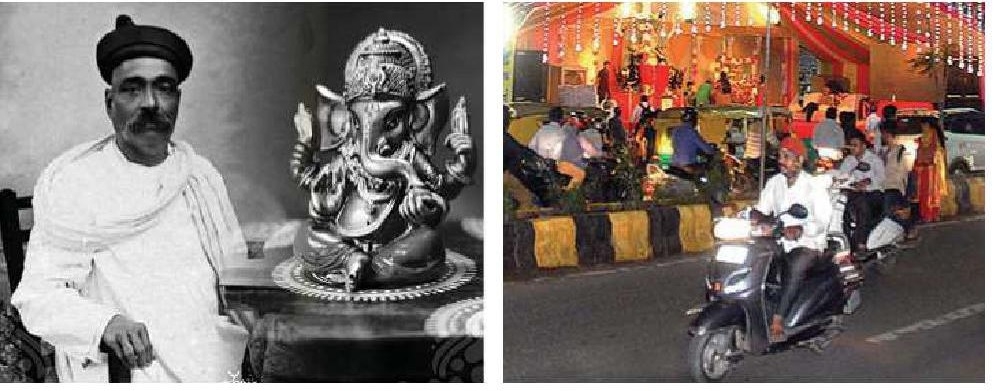The Road not taken...!
| Date :11-Sep-2024 |

By Biraj Dixit :
“Two roads diverged in a wood, and I—
I took the one less travelled by,
And that has made all the difference.”
If, going by the wisdom of Robert Frost’s famous lines, you do choose to take the road less travelled, make sure you are in woods and not in the concrete jungle called a city. For, in the city there are no roads less travelled these days. But in case you do manage to find one, don’t take it. If you do, it may make all the difference, but in the sense far, far different from what Frost talks about. In a city, roads less travelled are most certainly the ones not worth travelling. (If they were, would the progenies of mankind be kind enough to leave them unoccupied?) Thanks to our propagation – loud and clear – of our country getting a huge infrastructure push, we can duck the issue of the conditions of our city roads, which, had it not been for that explanation, appear so dug up as if we are searching for an ancient civilisation!
Speaking of ancient civilisation, our’s is a great, ancient civilisation. No, no! the condition of roads is not supposed to disclose that but in case they do, let it be made amply clear that these misfortunes of ours are quite a modern achievement. Ancient, in fact, are our traditions – glorious, logically-carved and beaming with purpose to cater to higher aspirations. Journeying alongside the thick and thin of the life of this ageless country, our traditions too have come a long way. They have been formed by most astute minds to bring to light all that is glorious about our nation, its culture and civilisation, its arts and sciences, its people and their priorities. Some other astute minds reimagined them to weed out corruption, lethargy, ignorance and indifference that crept into society. Still others used them as a rallying point to gather support for their grand ideas and to overcome seemingly insurmountable problems. Almost a century back, Lokmanya Bal Gangadhar Tilak picked one such tradition, reimagined it and used it in service of the nation.

Of course, we all know how the grand tradition of Sarvajanik Ganeshotsav started. At a time, when political meetings were sure to incur the wrath of rules, a pure, simple festival of Ganeshotsav became public celebration not only of a tradition but also of the rekindled spirit of Indians. So, a tradition was reimagined to not just remain a celebratory ceremony but a rallying point for time-appropriate decisions and united efforts to achieve common goals.
Now imagine, Tilak himself taking the road less travelled in our city in the present time! Walking with utmost care so as to save his clean, white dhoti from the pitfalls of potholes, carefully taking each step so as to avoid the plastic muck on the road, only to be stopped abruptly by an unruly barricade! As he looks up, he sees a 15-ft high idol of Lord Ganesha staring back at him. Most luminous, colourful, swinging lights adorning the pandal of his beloved Lord. The flower decoration and other embellishments most creatively done. And the idol itself is breath-takingly beautiful – a true masterpiece of a dedicated creator. His mesmerisation is disturbed by the noise from the other side of the road. He realises that the pandal covering a huge area of a side of the two-lane road has narrowed the already clogged road. In addition, there is a fleet of vehicles parked on what remains of the side of the road gobbling up a lane in its entirety. So now, the other side apparently is the only side.
On that side are unimaginably long queues of vehicles coming from both ends, honking, screaming and taking baby steps to pass the now shrunk road. Passing in those vehicles are irritated, tired faces, longing to reach home, perhaps in time for their own puja of Lord Ganesh at home. From their own positions, both the Lord of Wisdom and the Father of Indian Unrest look at India.
Some people recognise him and run towards him with folded hands. They touch his feet with beaming smiles. He too smiles, happy that some traditions of respect and humility still are unaltered part of Indian life. He enquires after the country and its people, praises the beautiful idol and continued tradition of ‘Sarvajanik Ganeshotsav’. People pour in all the information and boast how well they have kept a great tradition of ‘Sarvajanik Ganeshotsav’ and how it has grown in size and grandeur.
True to his image of not being the one to mince words, Tilak reminds them that the big ears of the Lord are for hearing the softest mumble of the hearts, not to listen to the raucously loud music. They quickly turn the music off and the Lord breathes easy.
“These decorations are brilliant. This huge idol, these ornaments, these embellishments, must have cost you a fortune,” he asks. “Absolutely Sir, but we can afford it. You see we are the fifth largest economy in the world now and will be third largest by the end of this decade,” boasts a gentleman. Tilak looks at the road then at Lord Ganesh. “So, what position will it take for you to have better roads?” Tilak asks and meets with embarrassed smiles.
“But if your roads are already insufficient for traffic, why place the pandals here?”
“Where else, Sir? We have been doing it since the time you started the practice. It does create traffic problems, but people will bear with it for 10 days. After all it is Ganeshotsav – festival of Lord of Wisdom.”
“I started Sarvajanik Ganeshotsav with a purpose of uniting Indians, helping them understand their tribulations, bondages so that they can think of ways to liberate themselves. You should also use Ganeshotsav to think of ways to free yourself from your bondages. “But we are free,” informs a bemused gentleman. “Are you?” asks Lokmanya, pointing at the clogged arteries of the city.
“I had walked on the road less travelled and so many joined it making it the road for future – road for you. But look at your roads? With the blessings of this Lord of Wisdom, you too can imagine newer ways of celebration so that through it you can find more and more solutions to problems rather than add more and more problems to your solution.”
“I know, my words about ‘Swarajya…’ are often repeated. But I have also spoken about ‘Su-rajya,’ you must pay heed to that too. Our efforts were for Swarajya, your’s should be for ‘Su-rajya.” Lokmanya looks at the Lord again, with folded hands paying obeisance and takes his leave. But by that time the flood of vehicles has swollen and he finds no road left. Now, it’s the Lord’s turn to step in. Those standing by Tilak’s side, thinking of what to do, see him vanish, only his words reverberating in the air. “Su-rajya.’ n
